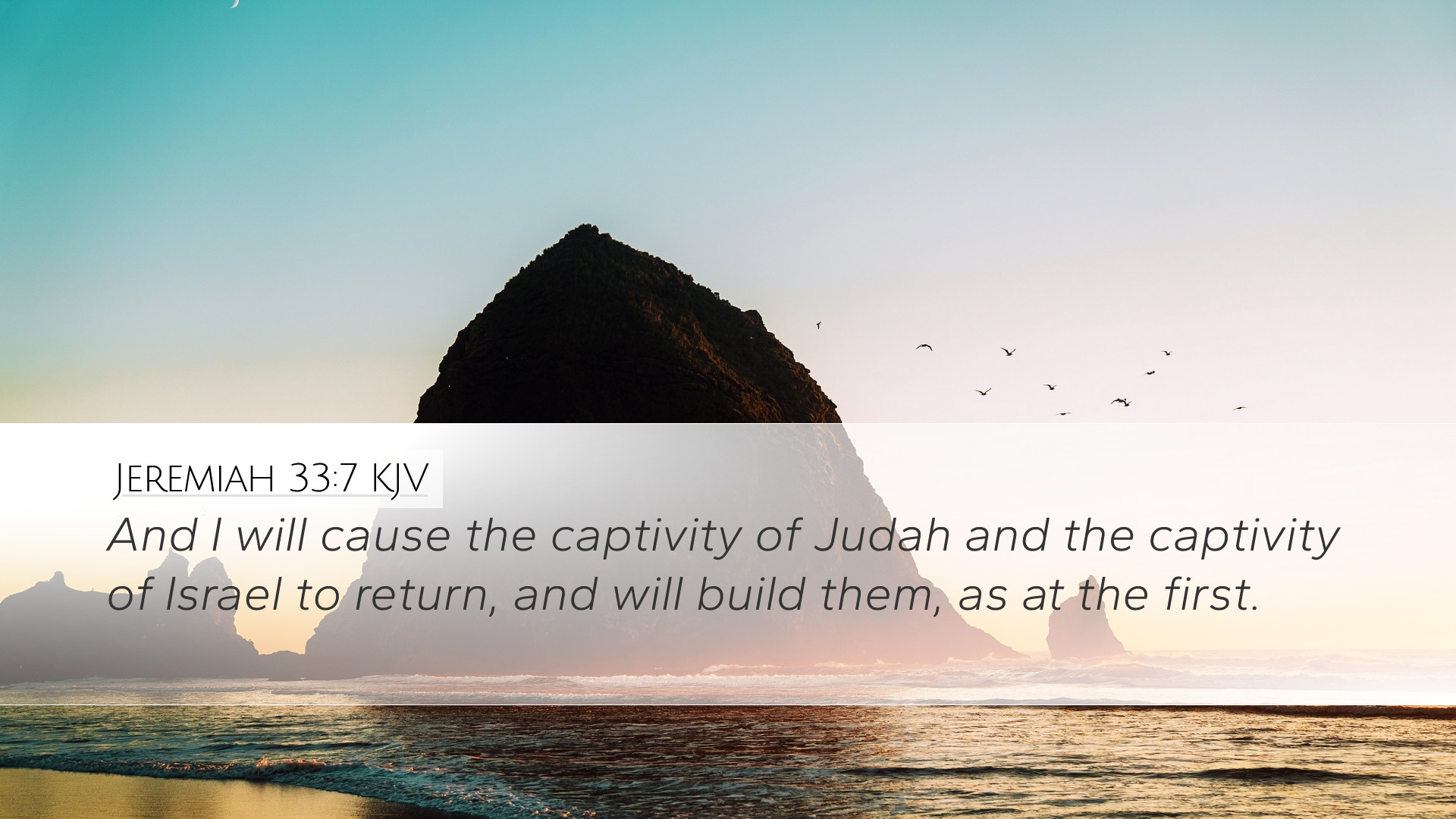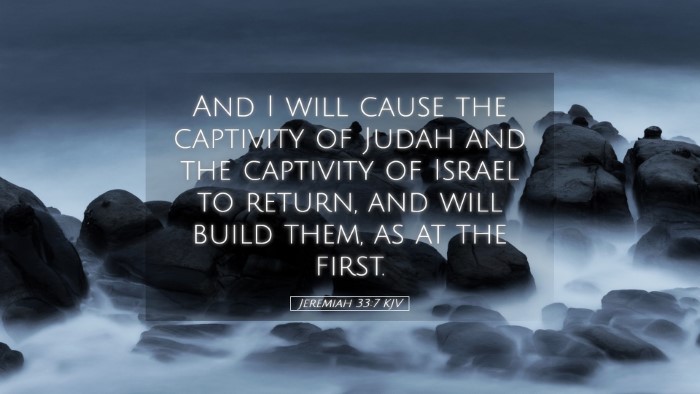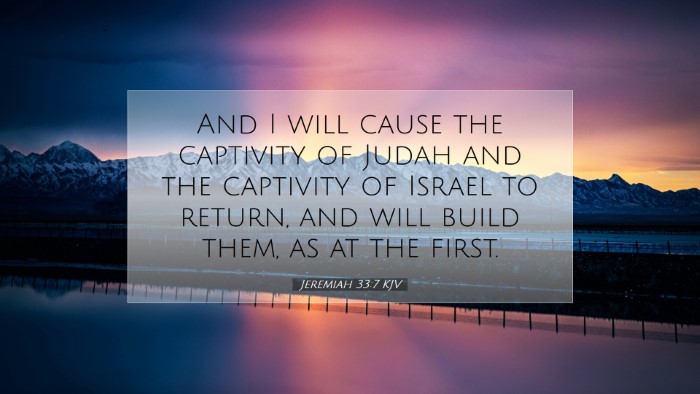Commentary on Jeremiah 33:7
Text of Jeremiah 33:7 (KJV): "And I will cause the captivity of Judah to return, and will build them, as at the first."
Introduction
In the context of the Book of Jeremiah, this verse stands as a beacon of hope amidst the trials faced by the people of Judah. Jeremiah, often called the "weeping prophet," delivered messages of both judgment and restoration. The excerpt from chapter 33 encapsulates God's promise to restore His people, reflecting divine mercy and commitment.
Historical Context
The prophecy of Jeremiah was proclaimed during a tumultuous period in Israel's history, particularly leading up to and during the Babylonian exile. As the nation dealt with the consequences of their disobedience to God, messages of hope grew increasingly necessary. This promise in Jeremiah 33:7 serves as an assurance of God's covenant faithfulness.
Theological Insights
This brief yet profound verse is packed with theological significance:
- Covenant Faithfulness: God’s intention to return Judah from captivity highlights His fidelity to His covenant with Israel. Unlike human relationships which may falter, God's promises stand firm (Barnes).
- Restoration and Renewal: The phrase "and will build them, as at the first" signals a future where the former glory of Judah is restored, representing not merely a physical rebuilding but a spiritual revival (Henry).
- The Nature of God: God is depicted here as a redeemer. His willingness to forgive and restore demonstrates His compassionate nature—characteristics admired throughout scripture (Clarke).
Verse Breakdown
And I will cause the captivity of Judah to return:
This first part signifies a divine intervention aimed at reversing the calamity brought upon the people due to their idolatry and rebelliousness. It carries the notion that God holds the power to liberate His people from the bondage of sin and exile.
And will build them, as at the first:
This second part reveals God's intention not simply to restore Judah to its former state but to elevate it back to a place of prominence and favor. Hence, the restoration is both physical and spiritual, improving upon the past (Henry).
Commentary from Influential Scholars
Matthew Henry: In his thoughtful exposition, Henry reinforces the notion that God's promises are as sure as His threats. Despite Judah's failures, their restoration underscores God’s unrelenting mercy. He emphasizes the importance of recognizing the context of restoration; it is an act of grace and a reaffirmation of God's authority.
Albert Barnes: Barnes delves deeper into the significance of this promise within the broader scope of biblical prophecy. He interprets it as a foreshadowing of the coming of Christ, who ultimately offers true spiritual healing and restoration to humanity. Many of his insights reflect the New Testament's reading of the Old Testament as pointing toward Christ’s redemptive work.
Adam Clarke: Clarke highlights the importance of faith in embracing God's promises, indicating that while the people may endure suffering now, their focus should remain on the hope of future restoration. His commentary sheds light on human sinfulness juxtaposed with divine grace—regardless of their despair, God remains committed to bringing His people back.
Applications for Today
This verse speaks volumes to contemporary readers—pastors, theologians, and laypersons alike:
- Hope for the Despairing: Those experiencing struggles and feeling captive to their circumstances can find solace in God’s liberating promise.
- Encouragement for Restoration: The promise of restoration serves as a guiding light within church communities, encouraging collective and individual renewals.
- Understanding God’s Character: A deeper understanding of God's faithful nature assures believers that regardless of their failures, God’s love remains steadfast (Henry, Barnes, Clarke).
Conclusion
Jeremiah 33:7 encapsulates the essence of God's unwavering commitment to His people even amid their darkest hours. The promise of restoration serves not only as a historical guarantee for Judah but also as a timeless assurance for every believer. Through this verse, the modern-day church can echo the sentiment of hope and divine intervention, reminding us all that God is always at work to redeem and restore His creation.


